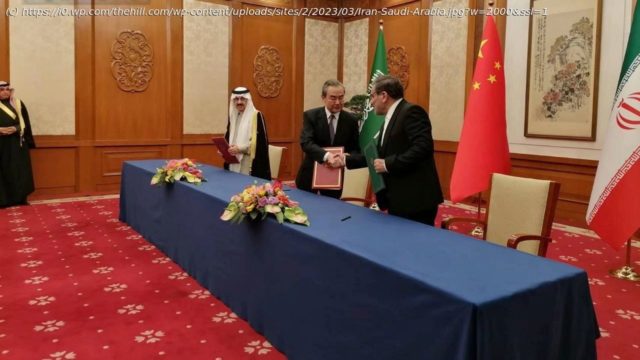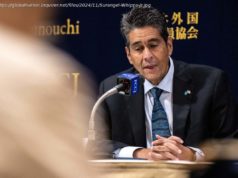Array
Foreign policy pundits breathlessly declared the near end of American power in the Middle East with the recently announced Chinese-brokered Saudi-Iranian deal. One Quincy Institute commentator quipped, the U.S. is no longer the indispensable peacemaker in the region. As to the decline of American power, Mark Twain may have said it best, “the reports of [its] death are greatly exaggerated.”
During my visit to Yemen’s southern port city of Aden last week, most observers I met regarded the Saudi-Iranian detente with deep skepticism. In their view, China may have simply — and only — garnered a photo opportunity of Saudi and Iranian envoys shaking hands to seal a potential thawing of bilateral relations.
What the Chinese actually secured is the cold reality of unrealized great power expectations in the Middle East.
Take Yemen, for example. Iran agreed to stop arming the Houthi rebels as part of the pact with Saudi Arabia. Yet within days of the accord, the Houthis launched a fresh offensive against Yemeni pro-government forces in the oil-rich Marib province. The Houthis remain in uncontested control of northern Yemen, including the capital Sanaa. Southern Transitional Council (STC) forces are firmly ensconced in the south and east of Yemen and host the internationally recognized government in Aden. In the southern capital, there is no appetite for a peace deal which extends the de facto Houthi control over STC forces.






